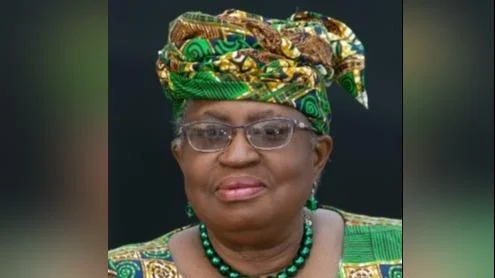At the Second Central Asia Trade Policy Forum, organized by the WTO in partnership with the Asian Development Bank (ADB) and the International Trade Centre (ITC), Director-General Ngozi Okonjo-Iweala delivered a keynote address. The forum, themed “Economic integration through WTO accession and membership,” highlighted the region’s potential for economic integration, foreign investment attraction, and growth through WTO membership.
The three-day event gathered representatives from acceding governments, current WTO members, and partner institutions to discuss opportunities and challenges of WTO accession and post-accession from a regional perspective. Okonjo-Iweala was joined by Kazakhstan's Minister of Economy Arman Shakkaliyev and National Bank Chairman Timur Suleimenov, who chaired the 12th Ministerial Conference (MC12) in Geneva in 2022. She commended Kazakhstan for hosting the forum and facilitating discussions on systemic issues related to the WTO from a Central Asian viewpoint.
Okonjo-Iweala also thanked Kazakhstan for co-hosting MC12 and its leadership on accession-related issues, particularly its contribution to the work of the WTO’s Group of Article XII Members. She emphasized Central Asia's role as a trade transit hub, noting that the Trans-Caspian International Transport Route (TITR), or Middle Corridor, could enhance connectivity between Europe and Asia. This route follows ancient Silk Road paths from China to Europe via Kazakhstan, the Caspian Sea, and Turkey.
Trade along this corridor has grown significantly in recent years and could triple by 2030. To achieve this potential, Okonjo-Iweala stressed that investments in both hard infrastructure and improvements in soft infrastructure are necessary. Implementing the WTO Trade Facilitation Agreement could streamline customs procedures and reduce trade costs by over 11%. Incorporating digital trade facilitation measures could further lower these costs.
Lower trade costs would help integrate Central Asian economies into global production networks. Okonjo-Iweala noted that while these countries are landlocked, they need not be digitally isolated. Despite regional challenges, she expressed optimism about increased momentum for regional integration efforts through WTO accession.
“The countries of the region are placing a pronounced emphasis on greater global and regional integration and are seeking to rebalance their intra-relationships with increased trade and connectivity,” she said.
She highlighted progress made by Uzbekistan, Turkmenistan, and Azerbaijan in their accession negotiations. Uzbekistan intensified its negotiations last year with its Working Party holding its 8th meeting recently. Turkmenistan began its process in 2022 and is preparing its initial documentation package. Azerbaijan reactivated its accession after a six-year hiatus last year.
“I am excited to see their renewed engagement and the significant progress registered so far,” Okonjo-Iweala stated.
The Central Asia Trade Policy Forum runs until June 5th with thematic sessions on technical assistance for accession, trade facilitation, and environmental nexus issues.
___

